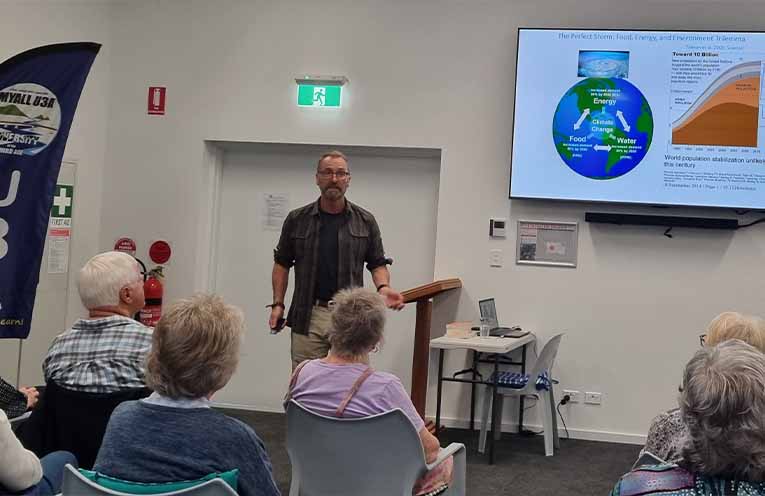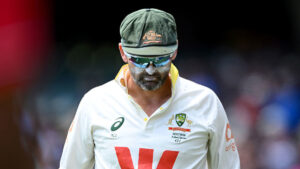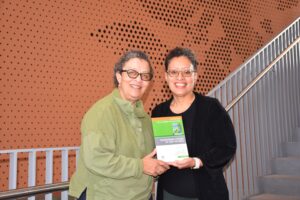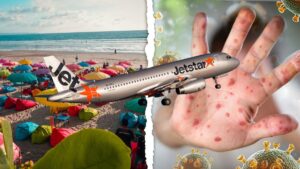
Environmental scientist, engineer, and author Dr. Paul Hardisty captivated attendees at the Myall U3A on Friday, October 31, with his insights into the ecological challenges facing the Great Barrier Reef. Originally from Canada and now residing in Perth, Dr. Hardisty also shared his passion for writing, a love nurtured by his parents.
“Write what you know, and what you really care about,” Dr. Hardisty advised, echoing sentiments of literary giants Mark Twain and Ernest Hemingway. Reflecting on his early life, he recalled leaving an engineering course at 18 to pursue writing, only to realize that he lacked the life experience necessary for meaningful storytelling. This realization led him back to engineering, and eventually to a career consulting on environmental issues across Africa, South America, and the Middle East.
Experiences in Yemen and the Environmental ‘Trilemma’
While working in Yemen for organizations such as the United Nations and the World Bank, Dr. Hardisty witnessed firsthand the environmental degradation caused by multinational corporations. “I suffered a massive crisis of conscience,” he admitted, which fueled his interest in global policy issues.
Dr. Hardisty highlighted a pressing global challenge he termed the “trilemma” of energy, food, and water. With UN projections estimating a global population of 10 billion by 2100, primarily in Asia and Africa, the demand for these resources will dramatically increase.
“With UN projections that by 2100 Earth will have 10 billion people, most of them within Asia and Africa, we have a ‘trilemma’ of energy, food, and water – a lot more will be needed of all three.”
From Non-Fiction to Fiction: A New Way to Tell the Truth
In 2010, Dr. Hardisty published his first book, a non-fiction textbook laden with complex mathematics that garnered limited readership. However, in 2015, he ventured into fiction with “The Abrupt Physics of Dying,” a thriller inspired by his experiences in Yemen. The novel was shortlisted for several awards.
“I realized that in fiction you can tell the real truth, while non-fiction has serious constraints,” he explained. This pivot allowed him to explore environmental themes in a more accessible format.
Focus on the Great Barrier Reef
In 2016, Dr. Hardisty moved to Australia to work with the CSIRO and later became CEO of the Australian Institute of Marine Science (AIMS), where he concentrated on the health of the Great Barrier Reef.
“2016-17 saw unprecedented coral bleaching,” he noted. Corals rely on a symbiotic relationship with algae called ‘zooxanthellae’ for their vibrant colors. When water temperatures rise, these algae can die, leading to coral bleaching. If the temperature remains high for too long, the relationship becomes irreparable.
“The scientific data is unequivocal: decade on decade, the world is getting warmer, but it has since become highly politicized, and ‘reef science’ has been attacked and actively discredited from multiple angles for political reasons.”
Challenges and the Path Forward
Dr. Hardisty shocked the audience by revealing that despite the establishment of the Great Barrier Reef National Park, several mining and oil-drilling licenses remain active. He warned that if current practices continue, the reef could be entirely dead by 2060.
“Thirty percent of what we need to do is individual effort, but 70 percent needs collective action by governments, NGOs, and corporations,” he emphasized. “The one thing the coming disaster wants is your acquiescence.”
The discussion highlighted the urgent need for coordinated global action to address environmental challenges. As Dr. Hardisty’s insights resonate, they underscore the importance of both individual and collective responsibility in safeguarding our planet’s future.






